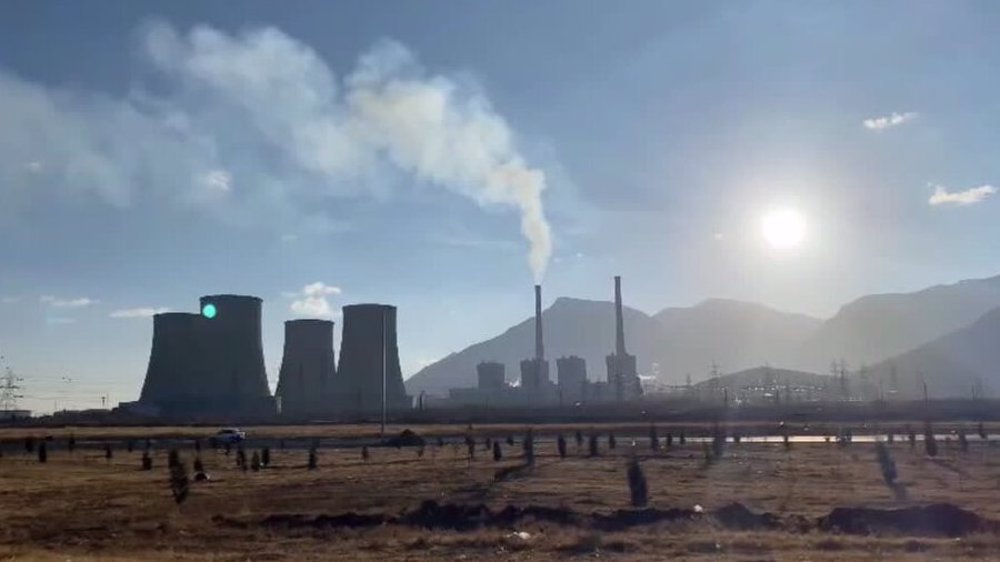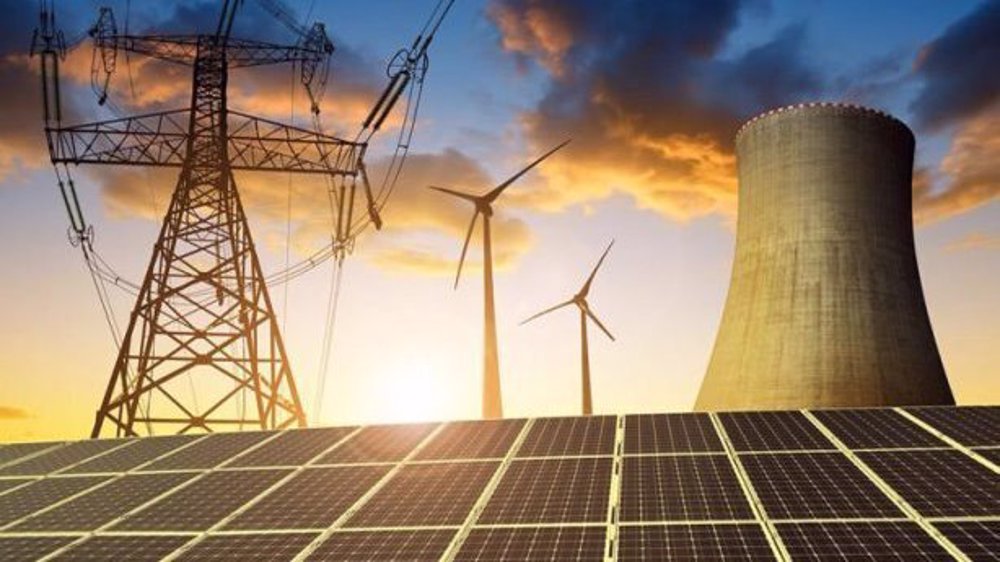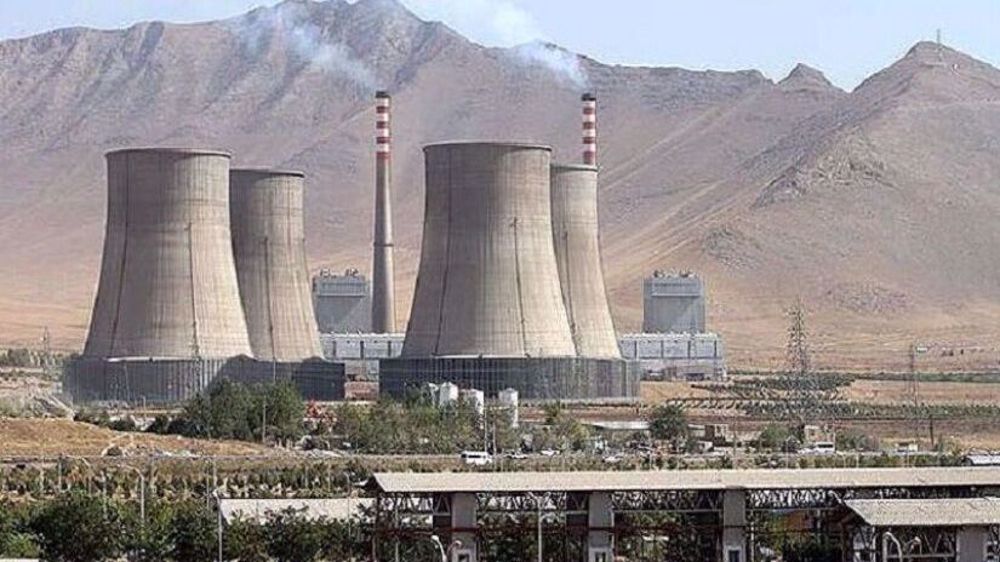US under pressure to extend Iran waiver as oil surges
The US has left the world guessing on whether it will extend waivers for countries importing oil from Iran, but the recent rally in prices means there is little room for maneuver.
"We'll make that decision in due course as we move towards May 2nd," US Secretary of State Mike Pompeo said of the oil waivers.
Eight major clients of Iranian oil received a 180-day waiver in November after the US withdrew from a 2015 nuclear deal with Iran and reimposed sanctions on the country.
The waiver expires on May 3, with most importers saying they want to continue oil imports from Iran.
Pompeo made the remarks at a news conference in which he announced that the US was designating Iran's Islamic Revolution Guards Corps (IRGC) as a terrorist organization.
The top US diplomat threatened the companies that continue to do business with Iran, warning them of risks involved.
“If you're the general counsel for a European financial institution today, there's more risk," Pompeo said. "It is absolutely the case that the IRGC amounts to a significant piece of the Iranian economy,” he claimed.
"It is also the case that it is sometimes difficult to know whether the IRGC is involved. ... This will require more diligence be done by every business that is considering doing things that are even now second and third orders removed from what you might think of as a traditional connection to the Iranian economy."
The US move is intended to put pressure on the IRGC, a powerful security organization founded in the aftermath of Iran's 1979 Islamic Revolution to protect the country. The IRGC is also actively cooperating in construction, infrastructure and relief projects.
Pompeo and John Bolton, US President Donald Trump’s national security adviser, are Iran hawks who prior to joining the president's inner circle long called for regime change in the Islamic Republic.
Pompeo has already threatened to “starve” Iranian people in remarks denounced by Iran's Foreign Minister Mohammad Javad Zarif as "a crime against humanity".
Bolton has said Washington’s ultimate aim “has been from the beginning to get oil exports from Iran down to zero."
"It is our intention to squeeze them very hard. As the British say: 'Squeeze them until the pips squeak'," he said last November.
South Korea, China, India, Greece, Italy, Taiwan, Japan and Turkey are the eight countries that have been exempted from the US sanctions.
Iran’s Minister of Petroleum Bijan Zangeneh has said the waivers are not enough, warning of “painful months” ahead for consumers because of insufficient supplies.
Other Iranian officials have said US boasts of bringing Iran’s oil exports down to zero are a bluff.
Oil prices scaled to new 2019 highs on Tuesday, hitting a five-month high above $71 a barrel. Fears of fresh supply outages from Libya amid a tightened market which is already squeezed by OPEC cuts and US sanctions on Iran and Venezuela are pushing up the prices.
The international benchmark Brent crude rose to $71.34 a barrel, the highest since November. US crude also hit a November 2018 high of $64.77.
Libya accounts for just over 1 percent of global oil output with around 1.1 million barrels per day (bpd). A surprise push by forces loyal to strongman Khalif Haftar to unseat a Western-backed government in the capital Tripoli is adding fresh impetus to the market rally.
The US is most likely to extend waivers for South Korea, China, Japan, India and Turkey due to the potential impact on global oil supply from political unrest in Libya, the Wall Street Journal has reported.
The Trump administration is under pressure after Republican losses in the midterm elections. It is extremely wary of any threats to the economy, including higher gas prices.
Iranian officials, meanwhile, say the country will bypass sanctions and sell its oil even without the exemptions because so many countries are on its side.
According to data from shipping sources complied by S&P Global Platts, Iran exported about 1.64 million bpd of crude and condensate in March, up from 1 million bpd in November.
South Korea relies heavily on Iranian condensate to produce petrochemical products, with the country’s media stating that any halt to imports of the key raw material could have a harmful effect on the economy.
Reuters claimed that Seoul had begun testing US condensate as a substitute for Iranian crude. West Texas Light (WTL) is seen as a potential substitute for Iranian condensate, it said.
The news agency, citing unnamed sources as usual, claimed that South Korea’s top refiner SK Energy and the country’s smallest refiner, Hyundai Oilbank, were studying the crude’s assay and testing samples.
It also claimed Indian refiners were holding back from ordering Iranian oil for loading in May pending clarity on whether Washington will extend the waiver.
Iran: Syrian people will decide their future without foreign interference
IRGC says Iran’s power exceeds borders, warns enemies to adjust themselves
Dozens detained, several wounded in Israeli raids in West Bank
‘Ethnic cleansing’: Hamas blasts Israeli attacks on Gaza hospital amid intl. silence
Saudi delegation meets HTS leader at presidential palace in Damascus
Relentless Israeli ceasefire violations justify need for self-defense: Lebanese MP
Tel Aviv tells Damascus Israeli forces will remain in occupied territory: Report
Dec. 22: ‘Axis of Resistance’ operations against Israeli occupation












 This makes it easy to access the Press TV website
This makes it easy to access the Press TV website